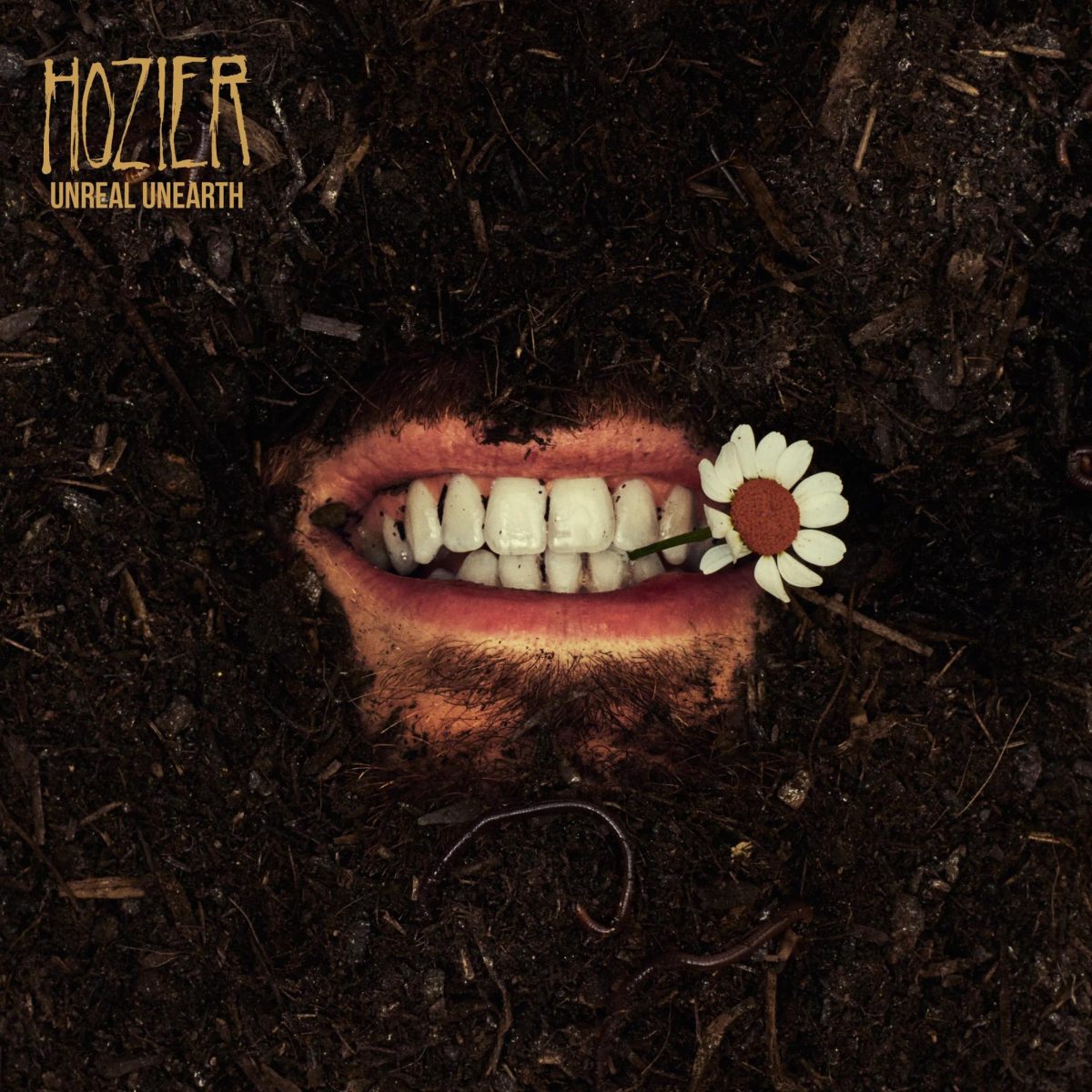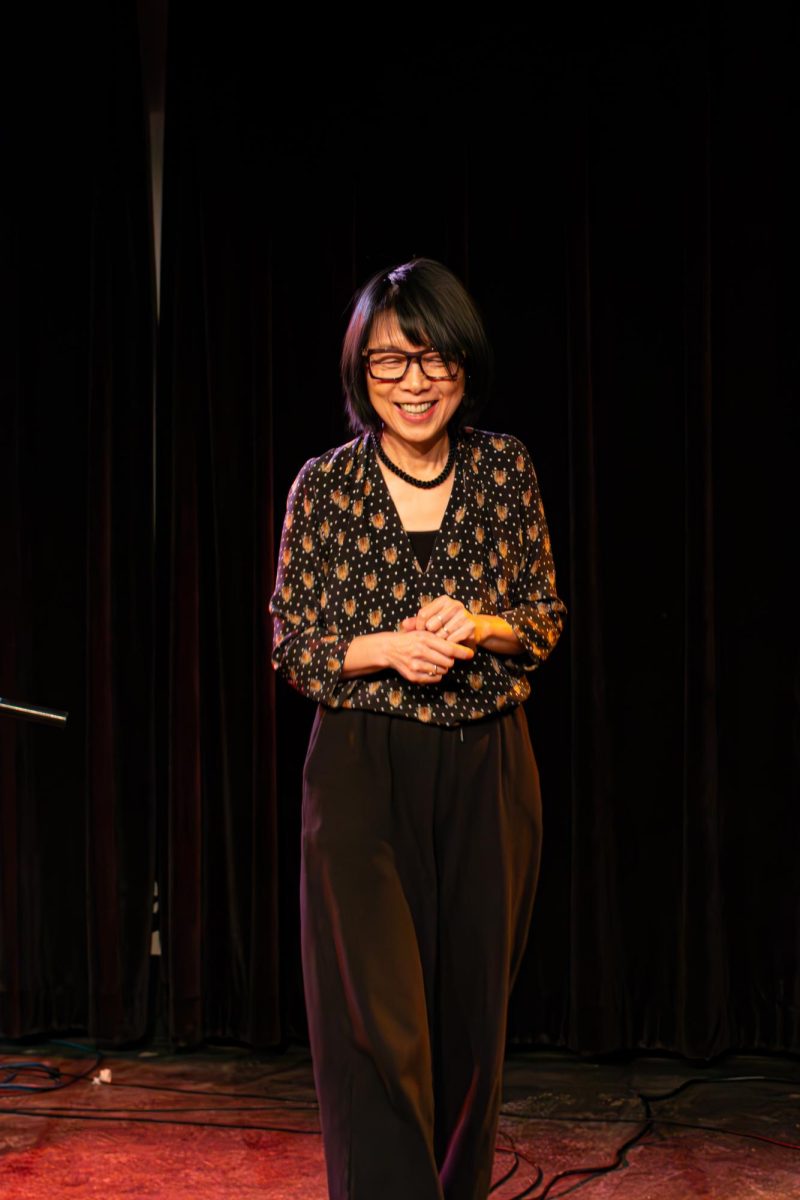Hozier’s newest album, Unreal Unearth, exceeds his previous work in terms of cohesive storytelling and layered meanings. While his early works showcased his skill as a lyricist and vocalist, the intense connections between the newer songs makes it nearly impossible to dissect a singular track without also considering its context within the album as a whole.
The opening song, “De Selby (Part 1),” has a dark, dreamy quality, highlighting the overall feel of the album, but after this introduction, the story shifts. “First Time” talks about Hozier’s repulsion to hearing his own name, referencing drinking from the river Lethe, a mythological river in the ancient Greek underworld that causes the drinker to forget all of their memories. This combination of classic and modern storytelling continues throughout the album, creating several layers of meaning for the listener to dissect.
Hozier brings us deeper into his religious references with “Francesca,” a song about Francesca da Rimini, a character from Dante’s Divine Comedy who is trapped in eternal damnation with her lover after they were discovered and murdered by her husband. The song highlights Francesca’s commitment and unyielding love for her partner with a chorus of “If someone asked me at the end / I’ll tell them put me back in it / Darling, I would do it again.”
Hozier’s transitions from songs demonstrates the story of this album as a cohesive unit. From “Francesca” to the devastatingly gentle “I, Carrion (Icarian)” followed by “Eat Your Young,” each song adds to the overall meaning he is trying to convey. Francesca “flew too close to the sun” with her affair, as it were; then, in “I, Carrion (Icarian),” Hozier weaves the myth of Icarus into a love story, the Earth being held up by the “you” referenced in the song and falling away from the speaker. The song is filled with dreamy lines and clever wordplay, such as “If these heights should bring my fall / Let me be your own / Icarian carrion.”
In referencing Icarus, “I, Carrion (Icarian)” brings to mind the myth and how Icarus’ father Daedalus was the one who gave him the wings. This brings us into “Eat Your Young,” a song about the ways in which the adults of the world have sacrificed the lives and futures of their children by creating weapons and destroying resources. With lyrics like, “Skinning the children for a war drum / Putting food on the table selling bombs and guns / It’s quicker and easier to eat your young,” Hozier makes a graphic argument against the military-industrial complex and the ways in which the previous generations have cursed their successors.
Hozier continues his critique of society with the song “Damage Gets Done” featuring Brandi Carlile. The song is about the ways in which it sets people up to fail, particularly people who struggle financially. The lines, “Wish I’d known it was just our turn / Being blamed for a world we had no power in” demonstrates the helplessness of the situation and the ways in which society blames the victims of financial oppression rather than helping them.
“Who We Are” has similar themes to “Damage Gets Done,” describing the feeling of giving your life to an intangible dream, only to struggle to define yourself and slowly lose what made the dream worthwhile. It also continues the focus on nighttime and dreamscapes, with lines like “We’re born at night” and talking about how pushing through the dark to get through life is just part of who we are.
Hozier’s identity crisis continues in the gut-wrenching lament “Butchered Tongue” and the successor “Anything But.” The first verse of “Butchered Tongue” shows the ways in which language connects people and cultures, as well as the connection between language and identity. The last lines of the chorus, “A butchered tongue still / Singin’ here above the ground,” foreshadow the song’s direction. The lyrics go on to describe young men with their ears chopped off, being punished for speaking their native languages, and the ways that oppressive societies have used language to fuel cultural genocides. Emphasized by the use of Gaelic throughout the album, this song is a scathing criticism of the treatment of these communities and a defiant statement that the language is still here — while the tongue may be butchered, it still sings aboveground. In almost direct contrast, “Anything But” describes escapism in its truest form. With lyrics such as “I don’t wanna be anything / But I would do anything just to run away” we see the desire to escape the corporeal self and disappear.
“Abstract (Psychopomp)” is about a memory Hozier has of a child saving a half-dead animal from the road. The song is about small acts of gentleness and also an acceptance that this animal will die, as all things must end. This continues the theme of acceptance and change created in the song “All Things End” earlier in the album. The alternate title of this song, “Psychopomp,” is a term for Greek spirit guides in the underworld.
“Unknown/Nth” was one of the singles that came out before the full album, like “Francesca” and “De Selby (Part 2).” The song describes how the worst part of a heartbreak is being unknown, particularly the chorus. This alternate title, “Nth,” is a continuation of the theme of religious or classical references by bringing to mind the ninth circle of hell, treachery. This is the worst punishment a soul can face and is the final element of darkness before the triumphant and cleansing “First Light.”
“First Light,” the final song in Unreal Unearth, wraps the album up spectacularly. With clamoring instrumentals and a pulsing rhythm, Hozier demonstrates the feeling of waking up after a disturbing night of dreams and visions. The triumphant feeling woven through the song brings the listener a sense of completion, that the ordeal is over.












